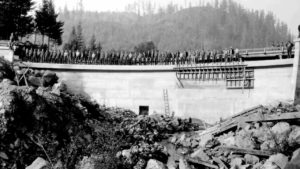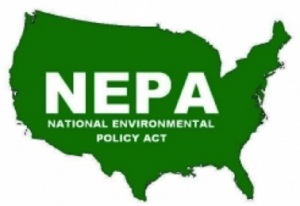CSPA Comments on State Water Board’s Response to Climate Change
CSPA, the California Water Impact Network and California Water Research submitted a comment letter on March 31, 2021 to the California State Water Resources Control Board, Division of Water Rights on the Water Board’s Recommendations for an Effective Water Rights Response to Climate Change: Identification of Data Needs and Recommendations to Incorporate Climate Change into Water Rights Permitting Policies, Procedures, and Methodologies (Recommendations). The Water Board released this report in February, 2021 and invited stakeholders to provide feedback and to propose other options not listed in the report. Click here for a link to the report.
The report outlines staff recommendations to make water availability analyses for permitting new water rights more robust. It also suggests actions to support an effective water rights response to climate change. The report describes the rapid rate of climate change in California and the inadequacy of reliance on past hydrology to predict future conditions. The report outlines new data needs, opportunities, and potential approaches for an effective water rights response.
Some of the report’s recommendations include actions such as:
• Develop adaptive permit terms in new permits
• Develop a fact sheet for water right applicants to incorporate climate change
• Expand existing network of stream and precipitation gages
• Reevaluate the existing instream flow metrics and criteria
• Revise the Fully Appropriated Stream list
• Prepare for and capitalize on capturing flood flows and storing them underground
• Plan for droughts
The CSPA et al. comment letter supports the report’s discussion of the impacts of climate change on stream flows and the need for better estimations of unimpaired flows. However, the letter expresses concerns about the several elements and omissions, including:
1) The Division of Water Rights needs to consider the role of diversions in stressing freshwater ecosystems in the state to avoid crisis management. During the 2012-2016 drought, the Water Board temporarily suspended at least 35 minimum instream flow standards. By August 2015, the Department of Fish and Wildlife reported that there had been 783 fish rescues in 52 different watersheds, comprising 51 species and more than 264,000 fish. Unless the Water Board does a better job of keeping water in our rivers and streams, California’s native aquatic and stream-dependent species will not survive climate change.
2. The Division of Water Rights needs to consider the decades of delays and inaction on determining instream flow needs. The comment letter references a 1976-1977 Governor’s Commission to Review California Water Rights Law 1978 Final Report. That report recommended increased protection for instream flows and better management of groundwater. For aquatic ecosystems to survive, the Water Board must implement long overdue protections for instream flows.
3. The Division of Water Rights needs to establish rules to protect variability of flows that are greater than required minimum flows. The Water Board must not consider all water over and above existing diversion allocations and required minimum instream flows to be available for appropriation. The Water Board should establish both defaults and site-specific rules that define water available for groundwater storage, particularly in new water rights.
4. The constitutional principle of reasonable use and the public trust doctrine must be the foundation of all water rights permitting decisions by the Water Board. In 1983, the California Supreme Court found that “[t]he state has an affirmative duty to take the public trust into account in the planning and allocation of water resources, and to protect public trust uses whenever feasible.” (National Audubon Society v. Superior Court (1983) 33 Cal.3d 319, 446)
The complete comment letter can be found here: CSPA-et-al-re-WR-response-to-Climate-Change.pdf and the attachment here: CSPA comments Managed Replenishment White Paper 120517.


